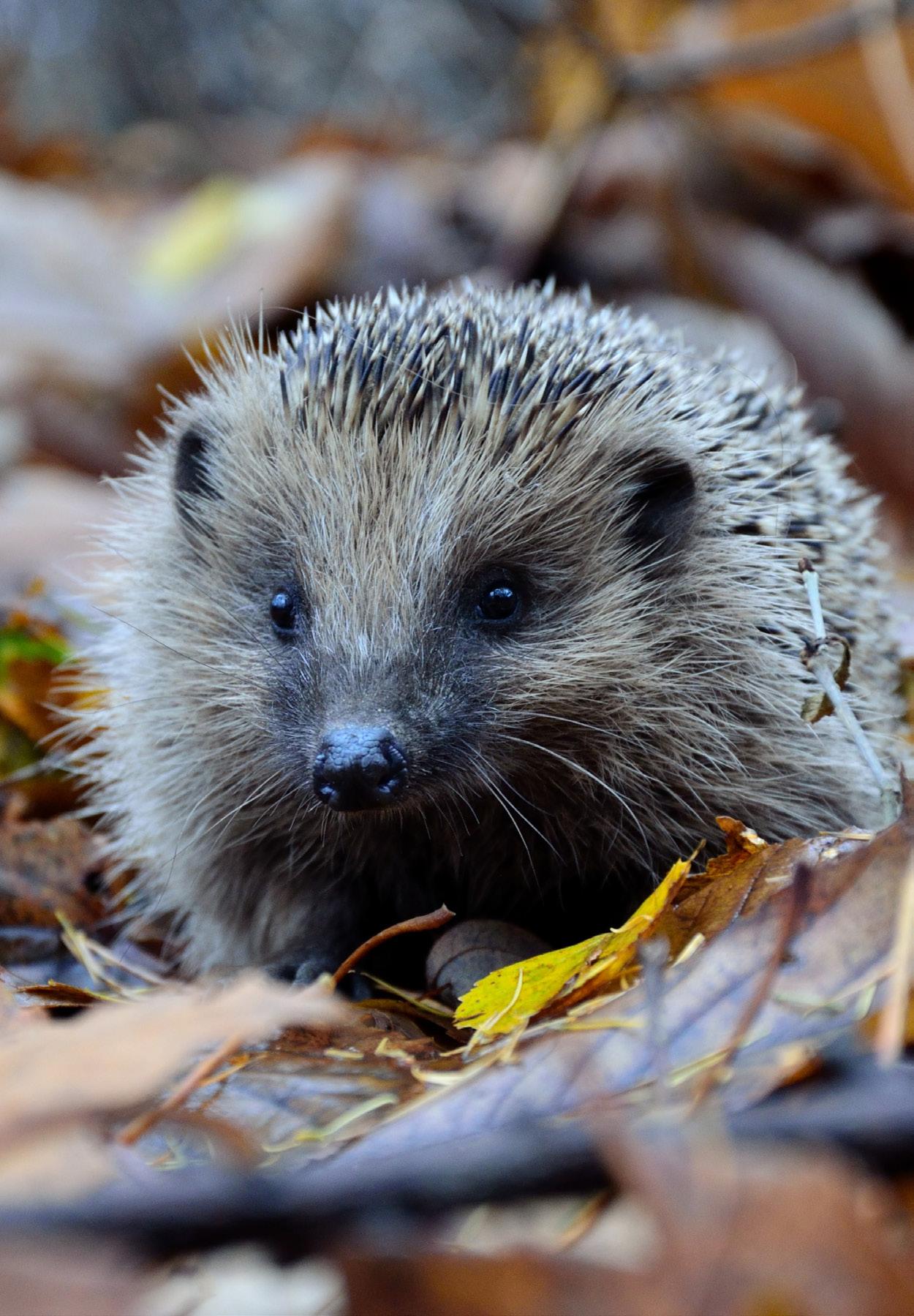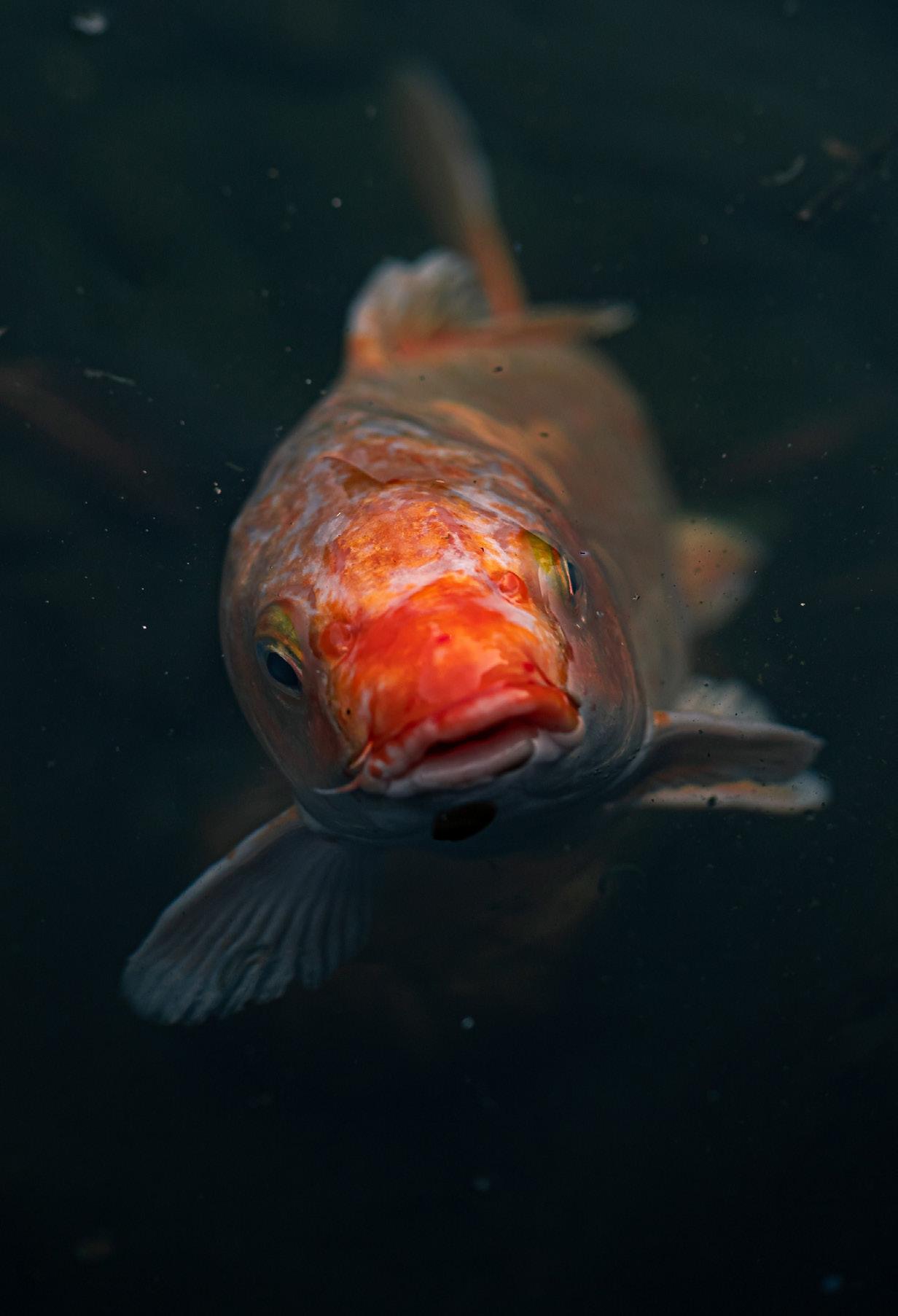
3 minute read
Overview
First surging in March, Covid-19 had a severe impact on the higher education sector globally in 2020. However, our staff and students rose to the challenge, rapidly switching to various combinations of online and on campus teaching within our BA Animal Welfare and Society (BA AWS), as national lockdowns came and went. Our MSc Animal Welfare Science, Ethics and Law (MSc AWSEL) was not directly affected, as it has been entirely online since its 2016 inception. However, Covid-19 had significant direct or indirect effects on literally everyone. One effect seemed to be a dramatic spike in enrolment numbers into our MSc – much as we like to hope this was purely due to the growing reputation of the programme! MSc student numbers were already greatly in excess of
Grounds Supervisor Mark Blake checking our fish in their new home at Basingstoke Crematorium, July 2020. Photo by Maurice James. national averages, and this resulted in some very high academic workloads. I’m very grateful to our staff who have done, and continue to do, an amazing job, given very high student numbers. Our BA and MSc both entered their fifth years of operation in 2020. The BA relocated back to the Faculty of Humanities and Social Sciences, whilst the MSc and Centre for Animal Welfare (CAW) remained in the Faculty of Health and Wellbeing. In 2020 we were also joined by Visiting Prof. Paula Sparks. Prof. Sparks is Executive Chairperson of the UK Centre for Animal Law, and teaches animal law and policy to our BA students. Prof. Knight was also assisted by lecturers Jenny Mace and Natalie Light, after receiving over £39,000 of funding for
research, knowledge exchange and teaching development projects. The Covid-related challenges of 2020 were unanticipated and profound. Nevertheless, our animal welfare students and staff still somehow managed to excel. With the assistance of our lecturer Jenny Mace and Head Gardener Maurice James and his team, MSc student Pauline Braun and several others were successful in rehoming our campus fish (four large carp) from a small pond, to a much larger off campus lake (in Basingstoke crematorium). Also with the support of Winchester estates and grounds staff, MSc student Carol Cook managed to secure for the University, Bronze hedgehog-friendly campus status, for completing the first stage of a national campaign to make university campuses hedgehog (and wildlife) friendly. Dr Steve McCulloch created an excellent website on the animal welfare issues associated with Brexit, and other CAW colleagues created or co-authored numerous podcasts, submissions and letters on a diverse range of animal welfare issues, to multiple governmental and nongovernmental organisations. Our academics and even some students jointly published at least two expert reports, 10 academic articles and chapters, 26 popular articles and letters, and provided at least 23 external presentations on animal welfare issues. Our work attracted at least 52 media interviews or mentions worldwide, on topics as diverse as Covid-19, pandemics, Brexit, intensive farming, badger killing, vegan pet food, hedgehog conservation, and purebred dogs. The work of our students and staff continued to attract multiple awards. Our students continued to prove they’re among the University’s best, with MSc student Francesca Bandoli and BA AWS student Bethany Powell winning essay competitions. Prof. Knight’s PhD student Constança Carvalho was awarded a PhD with Distinction by the University of Lisbon, for a thesis critiquing animal experimentation within depression research. Paula Sparks was appointed Visiting Professor within the University of Winchester Faculty of Health and Wellbeing, and Prof. Knight was awarded Principal Fellowship of Advance HE and 2020 Griffith University Outstanding Alumnus winner for its Sciences Group. And our BA AWS module ‘Animals and Alternatives Within Research and Education’ was shortlisted for the Lush Prize 2020 – Training category, the largest international prize covering 3Rs methods. Selected examples of our work are highlighted in the following. However, much additional fine work exists. I remain very grateful for the support of our academics and students, our expert Administrative staff, and the various faculties, schools, departments and other staff who have supported us all. These successes would not have been possible without their support. Andrew Knight, Director, Centre for Animal Welfare






